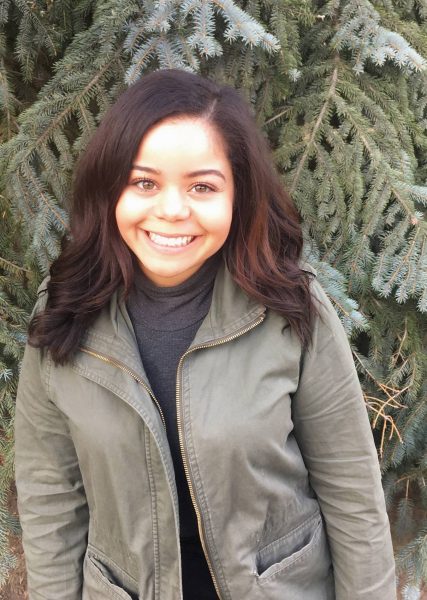When Raina Benford was 16 and still in high school, she got a job as a certified nursing assistant. Most of her clients were five, six or more decades older than she was, and as she grew to love the people she worked with she began noticing the unique challenges of aging in place. It wasn’t just physical fitness, but concerns such as finding outlets for socializing, knowing which sidewalks are the smoothest and least likely to cause falls, finding the most brightly lit streets at night and having access to benches and shaded areas for rest.
Her observations of aging have informed her MPH studies in health communication at ColoradoSPH at CSU and helped her secure a fellowship this fall at the Institute for the Built Environment at CSU. Earning the fellowship means that Raina, a second-year student, will be part of an interdisciplinary team of faculty, students and community professionals working to advance the development of healthy, thriving built environments, including work on the Healthy Aging in Place initiative. With Fort Collins recently being named an AARP-friendly city, there is momentum to bolster health in this population.
“With public health, it’s so important that we are collaborating with different disciplines to work on built environments,” Raina explained. “I think there’s still confusion about what public health is, so we need to be visible and part of these teams.”
When she begins her fellowship the week of Aug. 28, Raina plans to begin with a survey of older adults in Fort Collins: “What do they need in the community to not have to leave the community?” she said. “As someone ages, to not have to leave home can be hugely beneficial. (Leaving home) cuts years off people’s lives, and there’s a lot that can be done to retrofit homes and neighborhoods with the goal of aging in place.”
She gained particular insights into the issues of aging through a private Facebook group she started when she was a fitness instructor for older adults while an undergraduate student at the University of Nevada at Reno. She created the Facebook group for the people in her class and continues to maintain it, checking in to see how everyone’s doing and continuing to be a part of that community.
“The social aspect of it is what’s become important,” she said. “We’ll still post articles and videos, but really it’s about the friendships. A lot of these older adults were sedentary and didn’t leave their homes very much, so this class was a big deal, the relationships we created.”
Raina plans to graduate in May, after which she said she hopes to work in a field that incorporates her interests in sustainability, built environments and aging.

